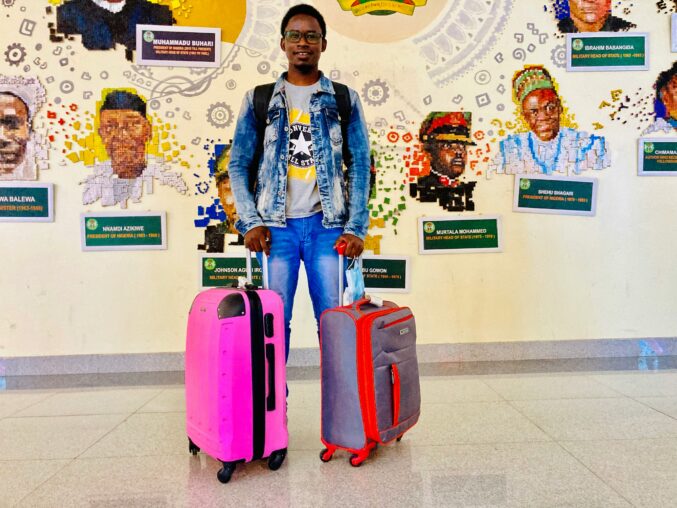Introduction
Studying abroad remains one of the most transformative experiences any student can have. It opens doors to world-class education, cultural exchange, global networks, and countless opportunities for career growth. For many young Africans, studying overseas is a dream worth pursuing but the process can seem overwhelming.
In this guide, we simplify everything you need to know to apply for international studies in 2025, from choosing the right destination to securing scholarships and preparing your visa.
Step 1: Define Your Study Goals
Before beginning your application journey, take time to understand why you want to study abroad.
Ask yourself:
-
What program or field am I passionate about?
-
Do I plan to return home or seek international experience after graduation?
-
Which countries align with my career ambitions and budget?
Having clear goals helps you choose the right school, course, and country that match your aspirations.
Step 2: Choose the Right Destination
When selecting where to study, consider factors like affordability, visa policies, and post-study work opportunities.
Top Study Destinations for African Students in 2025:
-
🇨🇦 Canada – Welcoming immigration policies and many scholarships for African students.
-
🇬🇧 United Kingdom – World-class universities and short postgraduate programs.
-
🇺🇸 United States – Diverse institutions, though funding is highly competitive.
-
🇩🇪 Germany – Tuition-free education and high-quality research programs.
-
🇫🇷 France – Strong academic reputation and many French-speaking programs.
-
🇿🇦 South Africa – Closer to home and growing international recognition.
Step 3: Research and Shortlist Universities
Visit each university’s official website to review:
-
Course requirements
-
Application deadlines
-
Tuition and living costs
-
Scholarship opportunities
Tip: Create a spreadsheet to track details for each school, this helps you stay organized and meet all deadlines.
Step 4: Prepare Key Application Documents
Here’s a checklist of documents most universities require:
-
Academic transcripts and certificates
-
Passport (valid for at least six months beyond your study period)
-
Statement of Purpose (SOP)
-
Letters of Recommendation
-
Curriculum Vitae (CV) or résumé
-
English proficiency test results (IELTS, TOEFL, or Duolingo English Test)
Pro tip: Your Statement of Purpose should highlight your goals, why you chose that course, and how it aligns with your career path.
Step 5: Explore Scholarships and Funding Options
Don’t let finances stop you, thousands of scholarships are available for African students.
Top Scholarships for Africans in 2025:
-
Chevening Scholarship (UK)
-
DAAD Scholarships (Germany)
-
Mastercard Foundation Scholars Program
-
Erasmus+ (Europe)
-
Mandela Rhodes Scholarship (Africa)
-
Fulbright Program (USA)
Start applying early and ensure your documents meet all criteria, funding deadlines often close months before university admission deadlines.
Step 6: Apply Early and Track Your Submissions
Most universities begin accepting applications 6–12 months before the academic year starts. Submit early to secure your spot and maximize your scholarship chances.
Use tools like Google Sheets or Notion to track application progress, document status, and email follow-ups.
Step 7: Secure Your Student Visa
Once accepted, your next big step is applying for a student visa. Each country has its own requirements, but you’ll typically need:
-
An admission letter
-
Proof of funds
-
Passport
-
Health insurance
-
Visa application form and fees
💡 Tip: Double-check embassy websites for the most updated visa requirements for your country.
🏡 Step 8: Prepare for Departure
Before you travel, make sure to:
-
Book accommodation near campus
-
Arrange travel insurance
-
Join online student communities (e.g., Facebook or Reddit groups)
-
Learn about the local culture and weather
-
Keep both physical and digital copies of all documents
This preparation ensures a smooth transition into your new academic life abroad.
Conclusion
Studying abroad is not just about earning a degree, it’s about personal growth, exposure, and empowerment. For African students, it represents a chance to build global perspectives and return home with knowledge that transforms communities.
By following these simple steps from choosing the right university to applying early and securing funding your dream of studying abroad in 2025 can become a reality.

